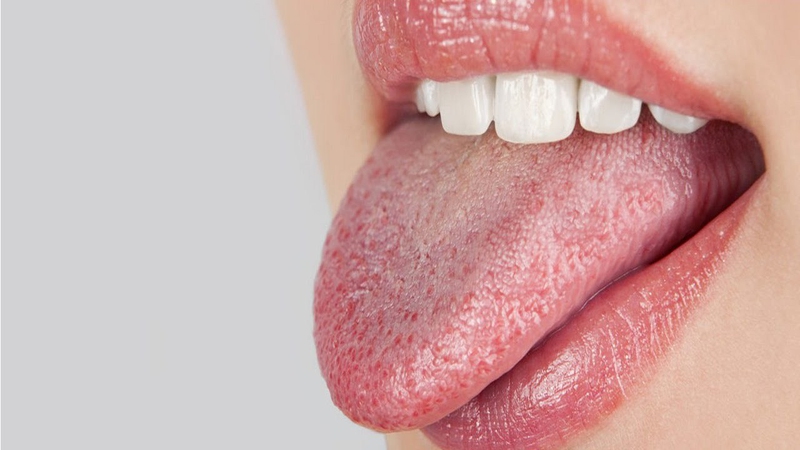Extreme dry mouth can lead to a variety of oral health problems, including gingivitis and tooth decay. Saliva in your mouth helps neutralize acids in your mouth and also wash away food particles. Dry mouth or xerostomia can promote the growth of bacteria in your mouth and this can result in all sorts of oral health problems. To resolve the issue, you need to know about different dry mouth causes and ways to deal with this problem.

What Causes Dry Mouth?
Taking Certain Medications
You may develop xerostomia when you take certain medications. Over 400 medications can cause dry mouth as a side effect. Medications can directly affect the function of your salivary glands and limit the production of saliva. Certain medications used to treat depression, hypertension, and cancer can cause dry mouth. Be sure to talk to your doctor if you think your mouth becomes dry after you have started taking a new medication.
Not Drinking Enough Water
Not drinking enough water can lead to dehydration that increases your risk of developing xerostomia. Sometimes, you know you are drinking enough water but you may be losing more through sweating. That can also lead to dehydration. When you have a digestive problem, you may lose fluid through vomiting. Similarly, a high fever may also cause dehydration, which is one of dry mouth causes.
Becoming Old
You may develop xerostomia as you become old. This happens because your salivary gland stops functioning properly due to age. Some older people have to take more medications that can also increase their risk of developing xerostomia.
Excessive Use of Drying Agents
Many food and beverages include alcohol, which is a drying agent. Excessive use of these products can lead to dry mouth. Alcohol can reduce the flow of oxygen and saliva in your mouth, which will lead to xerostomia. Many people use mouthwash to keep their breath fresh, but they do not know that even these products contain some alcohol and actually make xerostomia worse.
Unstable Blood Sugar Levels
Your blood sugar levels can have a direct impact on your salivary glands. When your blood sugar levels are unstable, your slavery glands will stop producing enough saliva. Moreover, there may also be unabsorbed glucose in the saliva secreted by your parotid glands. This can make your mouth feel dry and deteriorate your gums, teeth, and overall breath.
Inflamed Sinuses
One of many dry mouth causes is sinusitis, a condition characterized by inflamed sinuses. You can develop this condition due to fungal, bacteria, or viral infection. If you have sinusitis, you may have some other symptoms as well, such as loss of taste, fever, coughing, fatigue, painful pressure behind the eyes, and toothache. Some people with sinusitis use decongestants to improve breathing, but these products work by limiting the secretions of mucous. This can also affect the way your salivary glands work and increase your risk of developing xerostomia.
Blocked Airways
Your dry mouth could be the outcome of sleep apnea, a condition characterized by the airways becoming blocked while sleeping. In other words, sleep apnea refers to a condition in which you experience a temporary pause in breathing, which is due to the back of the throat collapsing. Most people with sleep apnea have no idea that they are suffering from this condition.
Sjogren's Syndrome
Xerostomia is one of many symptoms of Sjogren's syndrome, an autoimmune disorder in which your immune system starts attacking your salivary glands. Your doctor may check the rate of salivary flow to confirm if you have this disorder. Sometimes, they perform a biopsy on your lower lip to confirm the diagnosis.
Tobacco Smoking
One of many dry mouth causes is tobacco smoking. It can lead to a marked reduction in saliva production and result in xerostomia. You inhale thousands of harmful chemicals when you smoke, and this can lead to all sorts of health problems, including dry mouth. You need to work with your doctor and find out what you can do to quit smoking.
Use of Chemotherapy Drugs
When you are undergoing cancer therapy, you may develop xerostomia. However, the problem usually goes away once you have completed the therapy and are no longer using chemotherapy drugs. There may be a decrease in saliva function if you receive radiation treatment to your head and neck region.
Constant Snoring While Sleeping
When you snore a lot, it means you breathe through your mouth. You have to understand that mouth breathing is bound to make your mouth feel dry. If your mouth feels dry in the morning and gets better as the day progresses, you may have sleep apnea or you may have been snoring through the night.
Any Ways to Help?
You can resolve the issue if you know about dry mouth causes. However, you can take certain steps to reduce dryness in your mouth. For instance:
Suck on sugarless hard candy or chew gum (sugarless) to increase saliva flow.
Sip on water instead of drinking all at once.
Limit your intake of caffeine and alcoholic beverage.
Stay away from tobacco.
Consider making use of artificial saliva sprays.
Make a conscious effort to breathe through your nose all the time.
Along with taking steps to reduce dryness in your mouth, it also makes sense to pay attention to taking your teeth and gums in good condition. Be sure to brush twice a day and do not forget to floss. You should also talk to your dentist regularly to identify any issue in its early stage.
View All Comments /Add Comment